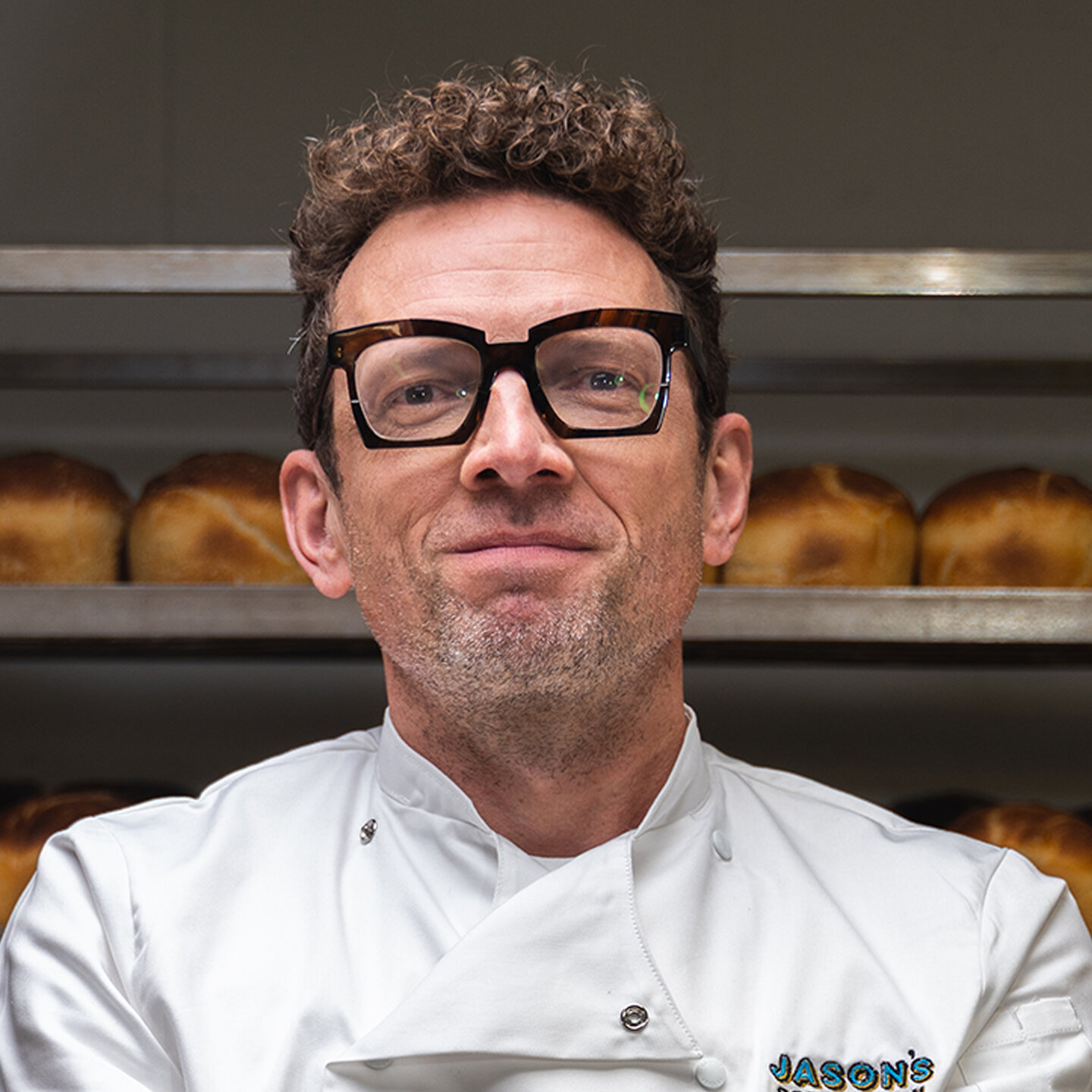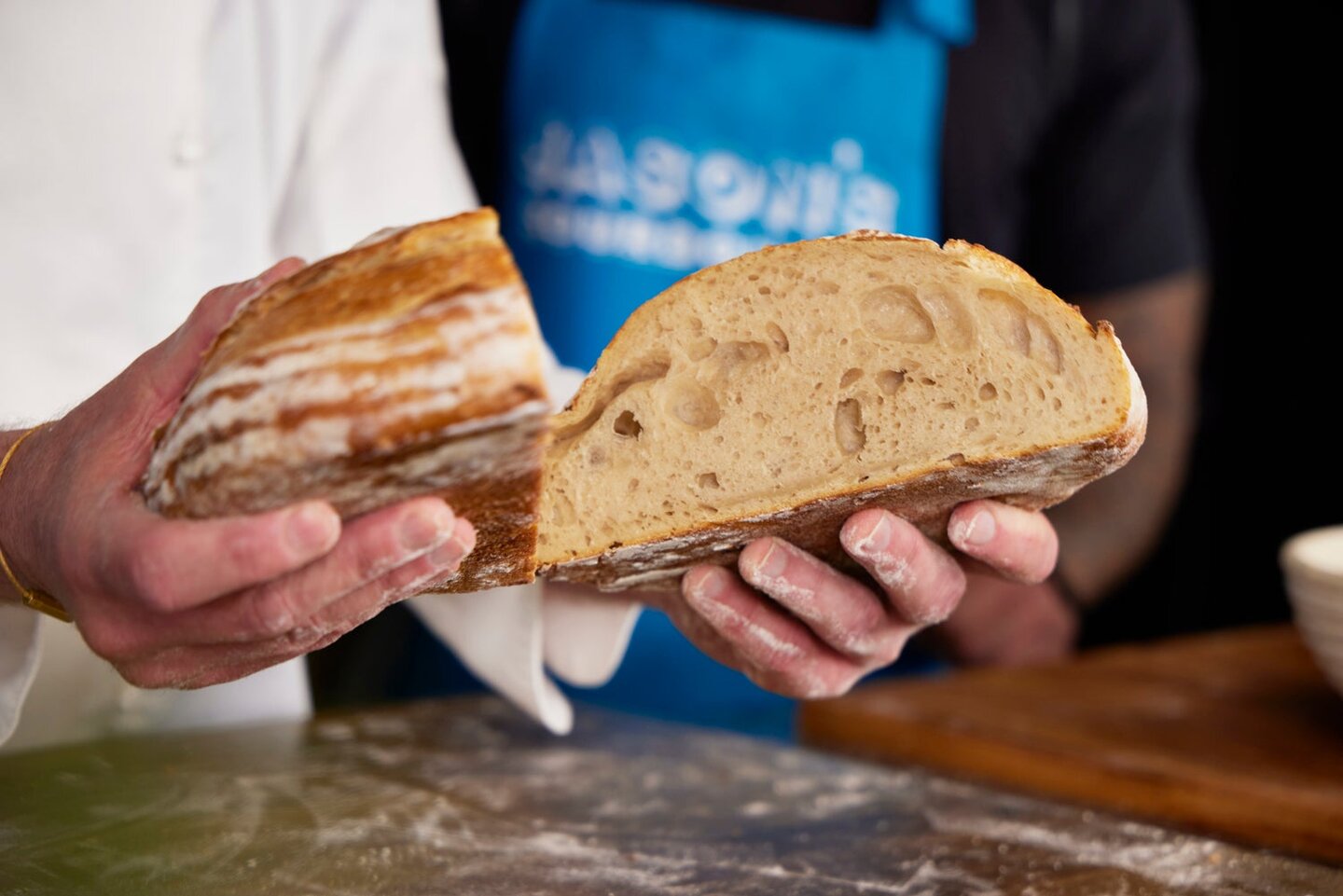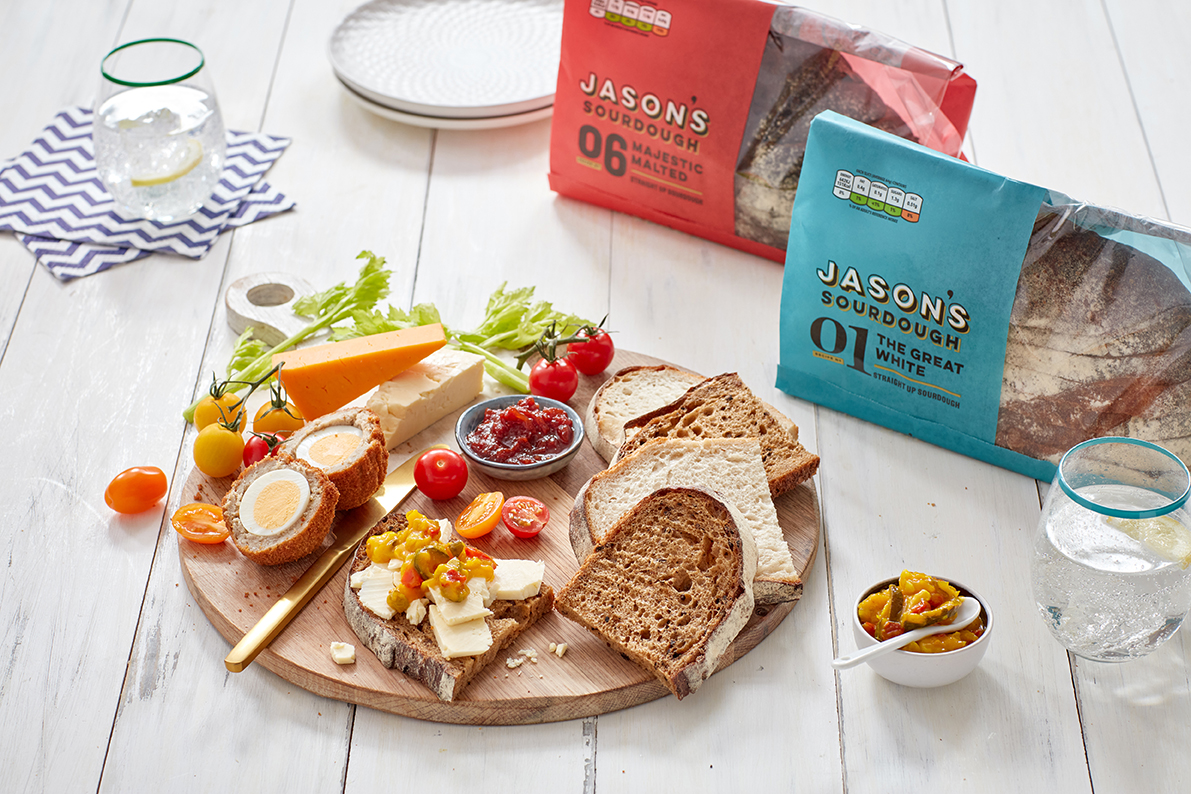Interview
“Quality has to be the number one priority” – Geary’s MD on appetite for artisanal bread
After spotting “a real gap in the market for a branded sourdough bread”, Jason Geary has built a business supplying UK multiples – and is eyeing further growth.

Credit: Geary’s Bakery
Under the tutelage of MD Jason Geary, UK baker Geary’s Bakery is looking to build on the success of its Jason’s Sourdough loaves, which have become the fourth-largest bread brand in the UK.
The family business traces its roots back to 1906 but, with the rise in popularity of sourdough, it has grown from being a single-customer business with Aldi to selling in the major UK supermarkets.
The company is preparing for another step up in production with a third bakery, with perhaps even a fourth further down the line.
Simon Harvey: Bread has always been a household staple but is it as much a staple as it used to be?
Jason Geary: I still think there are three or four staple foods in the supermarket – milk, eggs, bread and cheese. I do believe that bread is still a staple product that people buy every single week, without fail.
What I think has changed is people’s perception of what’s healthy. What’s not ultra processed foods has now become more evident.
Simon Harvey: Why is sourdough such a popular bakery category?
Jason Geary: Sourdough bread has been around for hundreds of years but it’s only really started becoming stronger and more aware to the public in say the last four, five to six years.
The Geary’s Bakery business is over 100 years old, and we’ve always used ‘sponge and dough’ – a dough that you make the day before, let it ferment and add to the dough the next day.
From that, we then move from sponge and dough to a liquid ferment. From that, we move to a liquid sour. But we weren’t making sourdough bread when we were using a liquid sour, we were using that to flavour our everyday bread, competing against the likes of Warburtons, Rank Hovis, Allied Bakeries and all of those people.
I started to buy sourdough bread from small, artisanal bakeries. I started analysing the supermarkets and I felt there was a real gap in the market for a branded sourdough bread that would have a reasonably good shelf life because of its very clean ingredients.
The business has to make money but my number one foresight is all about quality products, and that’s really what I wanted to be known for.

Credit: Geary’s Bakery
Simon Harvey: When did Jason’s Sourdough first hit shelves?
Jason Geary: The idea of Jason’s Sourdough was born around 2018. The brand actually hit the supermarket shelves one week before lockdown. We launched it in Marks and Spencer and, literally one week later, Covid hit, which created its own challenges.
Simon Harvey: Geary’s sold a majority stake to the Unsworth family in 2019. Does that holding still stand?
Jason Geary: What happened is, I personally invested £15m ($20.3m) into building another bakery, which was Glenfield One, which very quickly filled up. I knew to take the business further forward we would need to build a new bakery.
Everyday bread is stagnant whereas artisanal products are increasing quite considerably.
I had not had many years to get a return back on the investment, so I felt we needed some outside investment to take the bakery further. That’s when the Unsworth family came in. They bought some of my shares, invested heavily into the business and they are still a major shareholder.
Simon Harvey: Is growth in sourdough outpacing the overall bread market?
Jason Geary: I wouldn’t say specifically sourdough but, if you break the bakery sector down and split it into two sections, which is plant-based products and everyday bread – the other section is craft and artisanal – sourdough is a big cog in that.
Basically, plant bread, everyday bread is stagnant, it may just be losing a small percentage. Whereas artisanal products, which includes sourdough, food on the go, that is increasing quite considerably.
Simon Harvey: I guess that’s why private-equity firms and investors are so interested in bakery but more from an artisanal point of view?
Jason Geary: Yes but I will say this, our sourdough brand, through Kantar data that we buy and look at, is definitely a big driver of the increase in this sector.
Simon Harvey: What was the thinking behind offering the value-added Jason’s branded products like bacon rolls and toasties?
Jason Geary: We wanted to strengthen the brand further and look at what other areas of food we could potentially take the brand to. I realised the toasted sandwich offering isn’t brilliant unless you go to a few of the small, independent places and felt there was a big gap in the market.
We found there was only one range of breads out there that crisped up in the oven or a toasted sandwich maker and kept its crust for a considerable while, whereas all the other toasted sandwiches using all different breads went very soggy and didn’t hold the crust. That brand was Jason’s Sourdough.
We’ve teamed up with a sandwich manufacturer and we supply the bread to them. We’ve developed every single recipe and every single ingredient has been looked at. One of my stipulations to the chef is I don’t just want stock ingredients put into a toasted sandwich. Every ingredient needs to be analysed, needs to be challenged and there needs to be a reason why we include it. All the chicken is a bespoke recipe, the cheese, the kimchi, the honey mustard.
It’s all about keeping to what the brand stands for and put that into the toasted sandwich bread. Quality has to be the absolutely number one priority for the brand, no matter what we do.
Simon Harvey: Was the sandwich launch just in retail?
Jason Geary: We had a really soft launch about six months ago. It was just basically a food offering that ended up going into London, some of the big office companies that have four or 500 people working in one office space that had a canteen kitchen. It’s now going into a major airline launching later in the year on all their European flights. We’re slowly building the momentum and it’s also going to be going into a supermarket by the end of the year as well.
Simon Harvey: Is Jason’s Sourdough now the biggest revenue earner for Geary’s?
Jason Geary: Not yet. Before we started the brand, we were 100% literally one customer which was Aldi. Since we’ve launched the brand, the brand is gathering pace.
Simon Harvey: Companies House filings show Geary’s revenue was £67m in 2023. What is it now?
Jason Geary: 2024 was approximately £95m. At the minute, we are far above the £95m we did last year but obviously we’ve still got a long way to go and we’ve had capacity issues, hence the reason why we’ve built a new factory.
We’ve now got three factories. One in Barrow Upon Soar, Loughborough. Number two is in Glenfield, Leicestershire, which is called Glenfield One. Our new factory is Glenfield Two bang opposite our other Glenfield factory where a lot of the Jason’s Sourdough is going to be made.
There’s one production line gone in at present and then we’ve got another line going in toward the back end of the year which will fully maximise the site.
We can foresee a picture in the next couple of years where group turnover should be around £160-170m, somewhere around that.
Simon Harvey: What’s the capacity of the new factory?
Jason Geary: Before we launched the new factory, we were fractionally producing just under a million loaves of Jason’s Sourdough a week. The new factory will enable us to double capacity.
Simon Harvey: Is Jason’s Sourdough now the biggest revenue earner for Geary’s?
Jason Geary: Not yet. Before we started the brand, we were 100% literally one customer which was Aldi. Since we’ve launched the brand, the brand is gathering pace.

Credit: Geary’s Bakery
Simon Harvey: It sounds like you’ll soon by looking for an additional factory?
Jason Geary: We are looking at it. We are in discussions for another factory already but that’s still a fair way off.
Simon Harvey: Are younger generation consumers still interested in the bread category given their changing tastes and preferences?
Jason Geary: If you analyse the data, our biggest percentage of sales goes from about 35-40 years up to 55-60. With the social media side of things and quite a lot of the videos that we’ve seen on TikTok and Instagram, there is a lot of interest from younger generations, 18-19 up to late 20s who are talking about Jason’s Sourdough.
Younger generations are definitely becoming more aware about lifestyle, healthy eating and UPFs.
Younger generations are definitely becoming more aware about lifestyle, healthy eating and UPFs, so it’s really important that as a business we do focus on the younger generation. We’re a very modern business, active on social media, very bright packaging. It’s quite young, quite fun, quite innovative, so that’s what we’re trying to achieve with the brand, which hopefully appeals to the younger generation. And, looking at the data, it’s certainly working.
Simon Harvey: I guess it’s important then for the business to keep innovating to attract those younger consumers?
Jason Geary: A prime example of that is the launch of our protein loaf, which delivers high protein with minimal ingredients, no additives, no preservatives, no nasties in there. It’s all from pea protein and wheat protein and it’s been a really big success.
You have to keep pushing, you have to keep looking at new trends. We’ve got a couple of products launching in the next three or four months and there will be more launching next year as well.
Simon Harvey: Do you think the bread category is ripe for consolidation and M&A given it’s an area that’s been quite active of late?
Jason Geary: It is an area that it is busy and you’re always going to get people that are going to be looking but obviously we’re very focused on what we’re doing. We’re very driven and we’re very focused on taking Jason’s Sourdough to the next stage.
It’s a tough industry. We are doing well but it doesn’t come without its challenges, with obviously the wars going on and wheat costs and energy. I don’t know many industries that have suffered quite like the baking industry. I think wheat, gas, electricity, distribution, every single one of them applies to the baking industry.